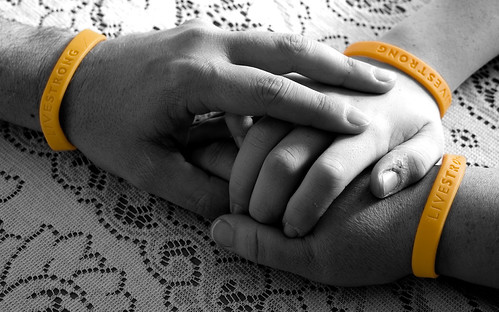
There’s been much written and said about Radiohead’s decision to let punters name their price when downloading their new In rainbows album. While some of this heat and noise as been quite sensible, much has been predictable tripe about how stupid and naive the band has been. There is some evidence, however, that the band wasn’t so daft, and that their monetary take may have indeed been not to far from what they (as the band) would have seen through traditional marketing channels.
More importantly, though, I think most of this blather totally fails to grasp the more central question: Most bands (artists, writers, open source programmers, etc., etc.) aren’t in it for the money. If you take out the handful that make a fortune (can we please take out the reformed Spice Girls? please?), most people who do this sort of thing aren’t looking to get rich, and many don’t even expect to pay the bills (hence the term “day job”). For them, the value is often much more in being heard (or read or whatever).
As a concrete example, Bill Langdon, Riccardo Poli, and I are considering expanding a chapter we’ve (in fairness, mostly they’ve) written on genetic programming into a full on book. The traditional model would be to find a (science) publisher (which we could easily do), and then have them produce and market the thing. It would sell a few copies, and we’d make a few bucks along the way. That kind of book is never gonna sell 10M copies, however, and we know going in that we’ll never make very much monetarily. But that’s not why most academics write papers and books; if it was we’d be the daftest lot on the planet. (No, don’t go there…)
What we’re after is, in a crude sense, references. Since we’re not going to get rich, we’ll settle for famous (at least in our circles). So we want as many people to read, use, and reference our book as possible, for that’s really the currency of the realm where we live. (And, in truth, that currency converts back to hard cash in complex and indirect ways, through pay raises, increased odds on grant applications, invitations to give talks and tutorials, etc., etc.)
So our intention is to follow a model not so far removed from Radiohead’s (although we’ll probably not get nearly as much press). Our tentative plan is to self-publish using one of the many print-on-demand sites, so there will be a printed, bound copy people can buy; we’ll keep the price low, because we’re more interested in volume than immediate profit. We’ll also give the book away, probably in HTML and PDF formats, to encourage people to check it out, use it, and refer to it, regardless of whether they ever actually buy a copy. We might have a PayPal donation button, sort of like Radiohead’s download for free and pay us what you think makes sense. Or we might not; that’s a bridge we’ll cross when we get there. We’ll do most of the marketing, taking copies to conferences, getting it mentioned on the relevant web sites and discussion groups, and hopefully picking up a fair bit of word of mouth along the way.
I don’t expect we’ll ever see much money on this deal, but I’m quite optimistic that the three of us can put together a book that’ll get used, and that’s the point for us. Similarly, Radiohead’s made enough money on their music that I doubt they’re deeply concerned about a few dollars here or there. They want to be heard and talked about, and they are. Hopefully we can have a somewhat similar experience.
I should also be clear that just because people like Radiohead (or struggling new bands) choose to give away their music, we shouldn’t just write them off as fools and rip them off at every opportunity. We all benefit from their passion, and it’s in our collective interest to support that when we can. That’s part of why I do my darndest to avoid giving money to bands that are already making a ton – they don’t need my support. I prefer instead to spend my money on the zillions of cool, but virtually anonymous, acts that can really benefit from a few bucks.

